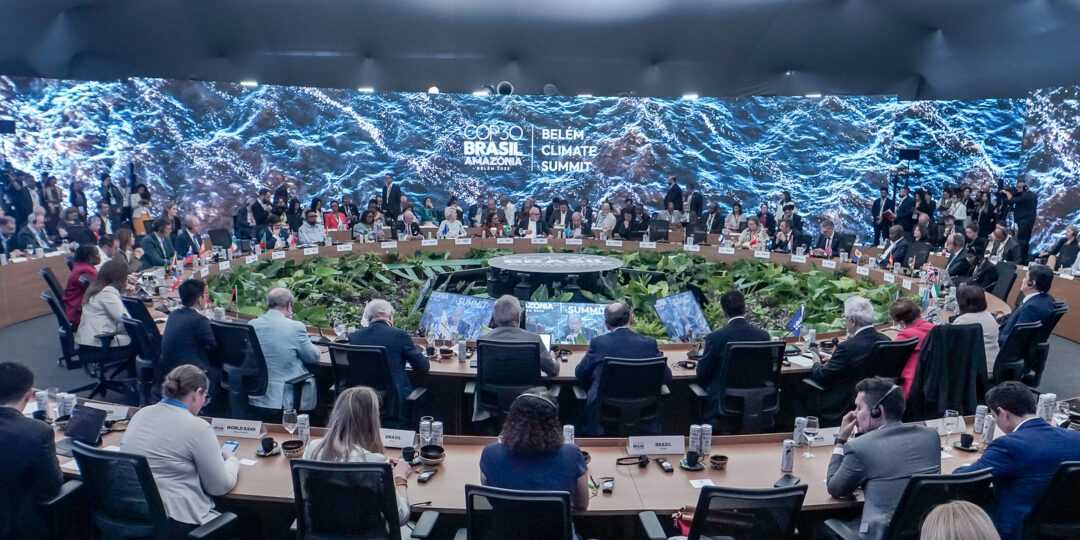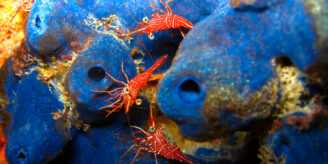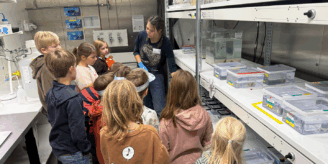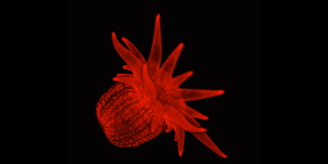A bigger picture
We research the sea and its function for humans and the environment
The Helmholtz Institute for Functional Marine Biodiversity (HIFMB) is a research institute located in Oldenburg. It researches marine biodiversity and its importance for the function of marine ecosystems. In doing so, it develops the scientific basis for marine nature conservation and ecosystem management.
BBNJ Agreement
Three questions on the BBNJ Agreement with Prof. Dr. Kimberley Peters. The Agreement on Biodiversity Beyond National Jurisdiction enters into force on 17 January 2026 – a major step forward for the protection of the high seas.
What is BBNJ, and why is it a milestone? What are the expectations for its entry into force? Is the agreement sufficient to halt biodiversity loss in the high seas?
Oceans are not only the richest in species but also the largest habitat – due to their depth, oceans make up more than 90 percent of the total habitat on earth.
They regulate the climate, bind CO2 and are an important food source for humans. Every second breath we take contains oxygen from the ocean.
In order for the sea to continue to fulfil these functions, which are also important for humans, intact habitats are needed. And these in turn depend on marine biodiversity, i.e. the diversity of species, genetic variants of each species and ecosystems.
How strongly and in what form this biological diversity reacts to global warming and human-induced influences is still largely unclear today.
Marine ecosystems are changing – also and especially through human influence. According to a recent study, for example, only 13 percent of the oceans can still be described as wilderness.
What do the changes in marine ecosystems mean for us and what measures do we take to counter them?
Our approach is interdisciplinary: At HIFMB, scientific research goes hand in hand with social science expertise in the analysis of social and political processes.
Biodiversity Change
Quantifying & predicting biodiversity change
Ecosystem Functions
Understanding functional consequences of change
Conservation & Management
Maintaining biodiversity & functions and enabling socio-ecological management
From tooth fish to food webs, from molecular genetic tools to underwater acoustics: dive into our current research
HIFMB at COP30 – BioAgora: Bringing Ocean Science to Policy
At COP30 in Belém, Brazil, Dr. Josie Antonucci di Carvalho from the Helmholtz Institute for Functional Marine Biodiversity (HIFMB) will highlight Europe’s efforts to bridge science and policy for marine biodiversity.
Did you know?
Unicellular plankton covers a size range that is comparable to the size difference between a small fish and a city like Oldenburg.
Global Biodiversity Targets Catch Up with Science
The recently adopted Montreal-Kunming Global Biodiversity Framework (GBF) marks a significant step forward in aligning global policy with scientific understanding of marine biodiversity. This is the result of a newly published study, that reviewed the marine biodiversity literature of the United Nations Decade on Biodiversity to assess whether the GBF’s targets reflect the complexity of marine life and improve upon the previous Aichi Targets.
Diving in with “Die Maus”
“What do I have to study to work here?” a girl of about ten asks me, and I’m absolutely delighted, because it seems we’ve achieved what we set out to do: to show how exciting marine research can be and how much joy we find in it.
Explore the Cellular Origins of Photosymbiosis
We are excited to announce several new job opportunities in the Photosymbiosis Research Group at the Helmholtz Institute for Functional Marine Biodiversity (HIFMB).
MEET THE TEAM

Our staff are the heart and driving force of our research.



